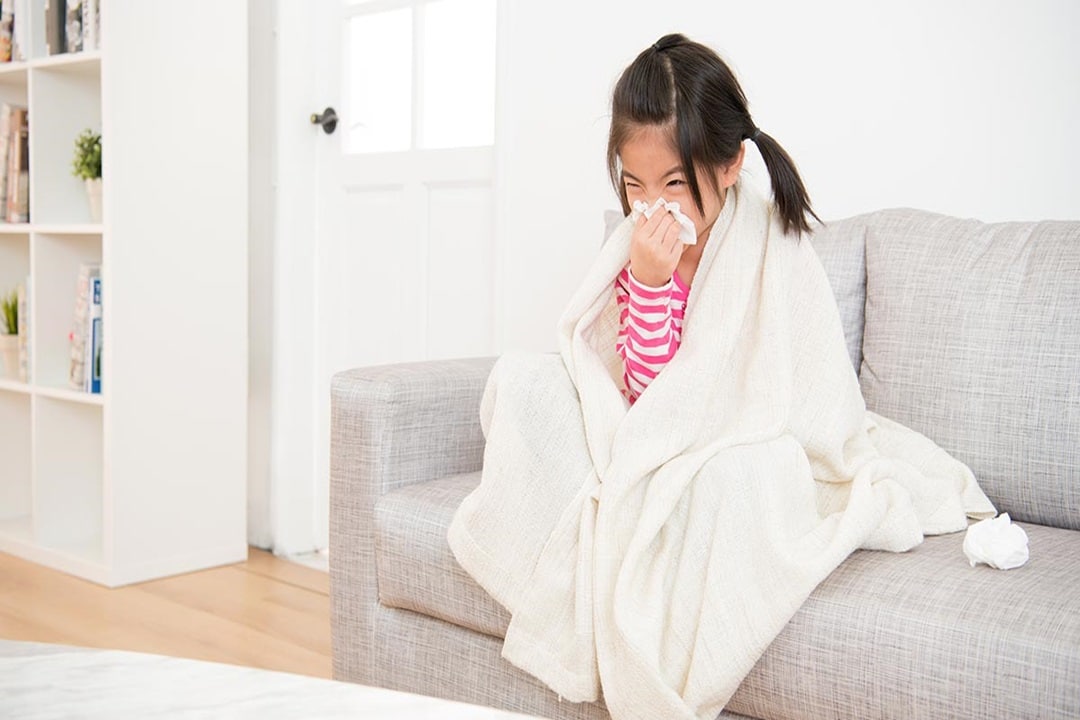Understanding Childhood Illnesses and Infections
Catagory: Children Author: Dr T.V Vijay Kumar

Childhood illnesses and infections are common occurrences that can cause concern for parents. From minor ailments like colds and fevers to more serious conditions such as pneumonia and meningitis, understanding these illnesses is crucial for timely treatment and effective management. In this article, we’ll explore some of the most common childhood illnesses and infections, their symptoms, treatments, and when to seek medical attention. Plus, we’ll highlight the expertise of Dr. Vijay Kumar, one of the best neonatologists and pediatricians in Vijayawada, known for his dedication and excellence in pediatric care.
Common Childhood Illnesses and Infections
1. Common Cold
The common cold is a viral infection that affects the upper respiratory tract. Symptoms may include a runny or stuffy nose, sneezing, coughing, and a sore throat. Treatment typically involves rest, hydration, and over-the-counter medications to alleviate symptoms.
2. Fever
Fever is a common symptom of many childhood illnesses and infections, indicating that the body is fighting off an infection. It is essential to monitor your child’s temperature and seek medical attention if it persists or is accompanied by other concerning symptoms.
3. Ear Infections
Ear infections, particularly in young children, are often caused by bacteria or viruses. Symptoms may include ear pain, fever, irritability, and difficulty sleeping. Treatment may involve antibiotics for bacterial infections and pain management.
4. Gastroenteritis
Gastroenteritis, commonly known as the stomach flu, is an infection of the digestive system caused by viruses, bacteria, or parasites. Symptoms include diarrhea, vomiting, stomach cramps, and fever. Treatment focuses on preventing dehydration through fluid replacement.
5. Respiratory Infections
Respiratory infections, such as bronchitis and pneumonia, can affect the lungs and airways. Symptoms may include coughing, difficulty breathing, chest pain, and fever. Treatment depends on the specific infection and may include antibiotics, antiviral medications, and supportive care.
When to Seek Medical Attention
While many childhood illnesses and infections can be managed at home with rest and supportive care, there are certain instances where medical attention is necessary. You should seek medical help if:
- Your child has a high fever that persists or is accompanied by other concerning symptoms.
- Your child has difficulty breathing, chest pain, or wheezing.
- Your child shows signs of dehydration, such as decreased urination, dry mouth, or lethargy.
- Your child’s symptoms worsen or fail to improve after a few days.
Expertise of Dr. Vijay Kumar in Vijayawada
In Vijayawada, Dr. Vijay Kumar stands out as one of the best neonatologists and pediatricians. With extensive training and experience, Dr. Kumar is dedicated to providing exceptional care for children of all ages. His expertise encompasses the diagnosis and treatment of childhood illnesses and infections, ensuring that young patients receive the best possible care. Dr. Vijay Kumar’s commitment to excellence and compassionate approach have earned him the trust and respect of countless families in Vijayawada and beyond.
Conclusion
Understanding childhood illnesses and infections is essential for parents to recognize symptoms, seek appropriate treatment, and ensure the well-being of their children. From common ailments like colds and fevers to more serious conditions such as ear infections and respiratory infections, early intervention is key to successful management. By staying informed and seeking guidance from trusted healthcare professionals like Dr. Vijay Kumar, parents can navigate childhood illnesses with confidence and peace of mind.
Recent Post
-
Understanding Neonatal Jaundice: A Guide for New Parents by Dr. Vijay Kumar
-
The Importance of Immunizations: A Pediatrician’s Guide
-
Understanding Childhood Illnesses and Infections: Expert Insights
-
Neonatology FAQs: Expert Answers to Common Questions about Newborn Care
-
From Cradle to Playground: Essential Milestones in Pediatric Development
-
Navigating the First Days: A Neonatologist's Guide to Newborn Care
-
Expert Parenting Tips for Indian Parents: Dr. Vijay Kumar's Advice in Vijayawada
-
Baby Crawling: 10 Tips To Help Your Newborn Learn To Crawl
-
Healthy Sleep Habits for Kids
-
Children’s High Cholesterol
-
Diaper Rash Prevention and Treatment
-
Understanding Different Types of Cholesterol in Kids
-
Empowering Auditory Well-being: Neonatal Hearing Screening and Early Intervention Insights
-
Nurturing Hope: The Vital Role of Neonatal Intensive Care Units (NICUs) in Healthcare
-
Safeguarding the Smallest: Strategies for Managing Infections in Newborns
-
Preterm Birth: Risks, Prevention, and Treatment Options
-
The Benefits and Risks of Breastfeeding for Newborns
-
Managing Jaundice in Newborns: Understanding, Treatment, and Care
-
Sleep Patterns and Schedules for Newborns: A Guide for New Parents
-
Common Health Issues of Newborn Babies
FAQ (Frequently Asked Questions)
Common symptoms include fever, cough, runny nose, sore throat, ear pain, vomiting, diarrhea, and fatigue.
Look for persistent high fever, difficulty breathing, chest pain, or worsening symptoms, which may indicate a more serious condition.
Seek medical help if your child has a high fever, difficulty breathing, persistent vomiting or diarrhea, signs of dehydration, or worsening symptoms
Treatments may include rest, hydration, over-the-counter medications, antibiotics (for bacterial infections), antiviral medications, and supportive care.
Practice good hygiene, keep vaccinations up to date, avoid close contact with sick individuals, and promote a healthy lifestyle with nutritious food and regular exercise.
